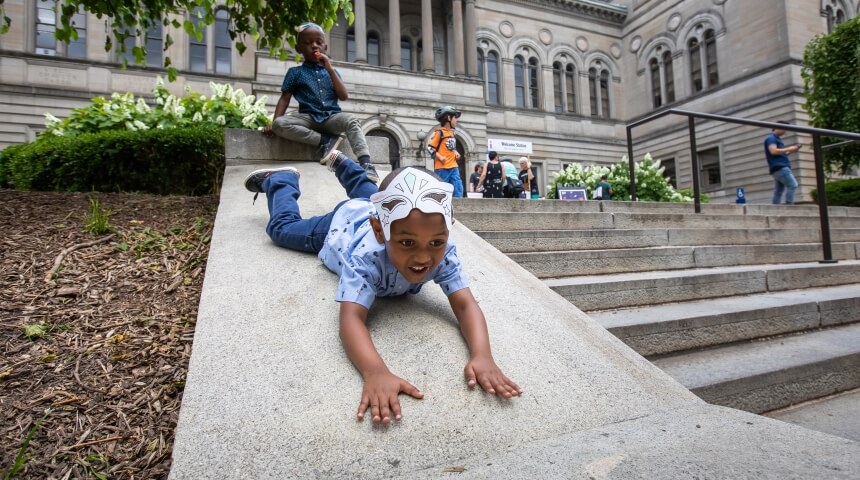“Play is often talked about as if it were a relief from serious learning. But for children, play is serious learning.” -Fred Rogers
There’s more to playing than meets the eye. It burns off energy and strengthens muscles and critical thinking skills. It promotes literacy by creating connections with words and print. And, especially in these unpredictable times, it helps kids to make sense of both unexpected events and everyday life.
For a very young child, for instance, masking up might be less “new normal” than just “normal,” and naturally reflected in play. Dolls are beginning to sport mini face masks, and coronavirus germs are becoming bad guys in kids’ games, reports The Washington Post. (I especially love one child’s suggestion of “a vaccine made of tiny alligators that could be injected into the blood to eat up all the coronavirus.”)
Acting out virus-related or other scenarios may also be a child’s way of expressing anxiety or trauma. As your child plays, ask open-ended questions, such as “How does your doll feel?” and then reflect–“She looks sad,” for instance–to encourage your child to share.
Books can also help kids understand coronavirus and social distancing. In Lillian Jane’s “Heroes Wear Masks,” a familiar fuzzy face sports a mask: Elmo learns about washing hands, social distancing and not being able to hug his friends while still having fun. In “Share Your Rainbow,” 18 illustrators paint pictures of fun, happy gatherings of family and friends, reminding readers that social distancing won’t be forever.
Play is also vital for general physical and emotional well-being, especially as stay-at-home advisories and remote learning have increased screen time and decreased opportunities to socialize in person. If you have room to shake the wiggles out, you can play movement games like Duck, Duck, Goose, or start a game of I Spy on a walk.
If kids want to get away from the screen for a bit, puzzles and board games are a good bet. For more sensory-based activities, they can make slime or playdough. And older kids can learn new tricks.
But even with social distancing, it’s still possible to play together. If, like Elmo, a child misses hugging their friends, they can invent a silly wave, noise or dance to say hello. If they miss coming to storytime, they can still enjoy stories, songs and shakers in Virtual Storytime.
Teens, too, can benefit from play. For those inclined toward art and building, CLP’s Teen Time @ Home demonstrates projects like LED cloud lamps and image transferring.
And grownups, don’t forget to join in the fun. You’re never too old, and your participation will encourage kids to play even more. And someday, they may grow up to invent a vaccine. (Maybe with tiny alligators. Who knows?)

